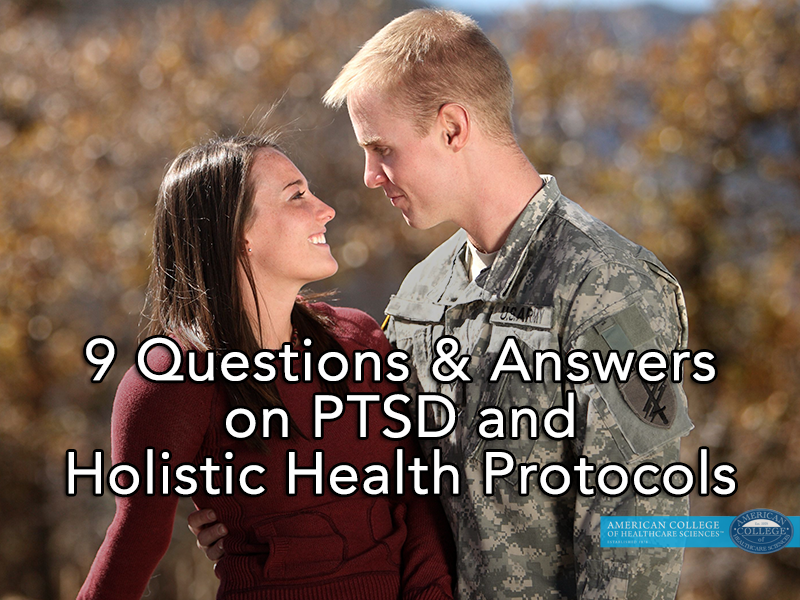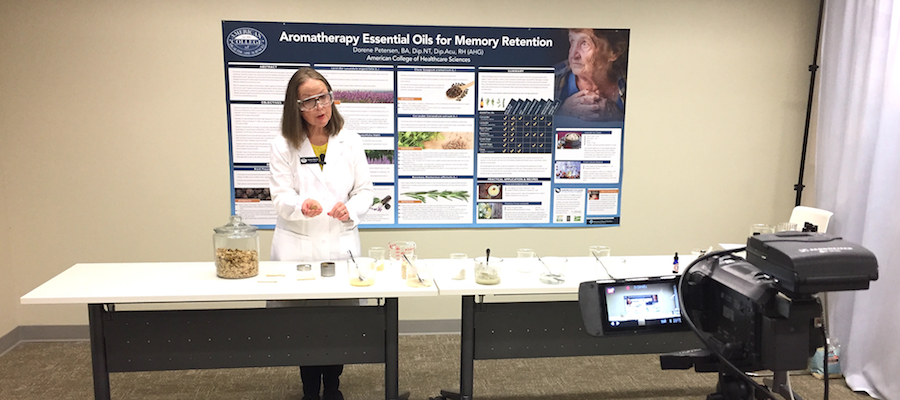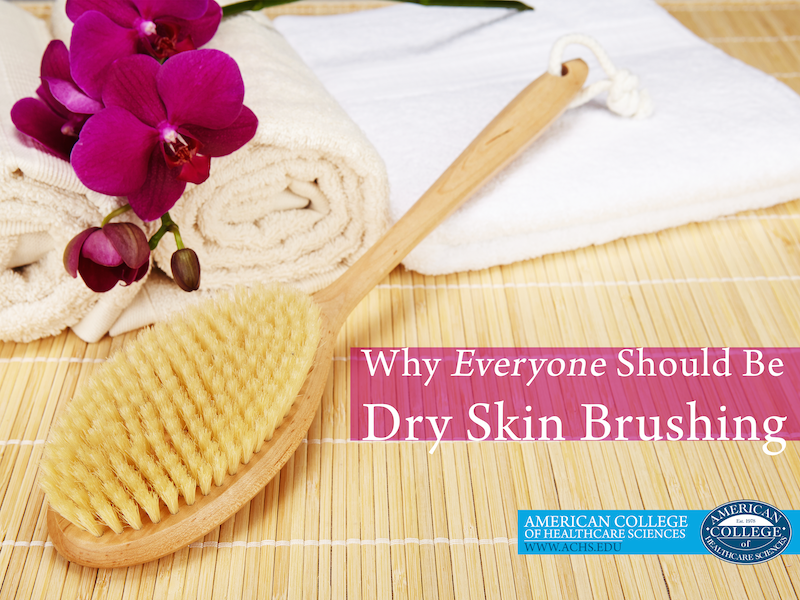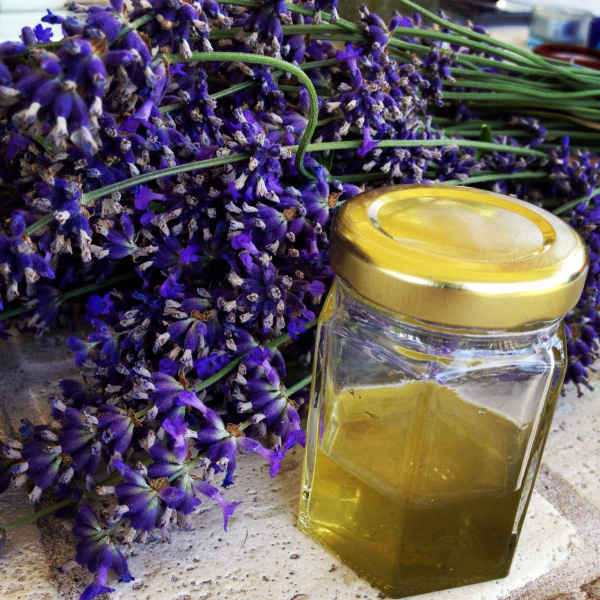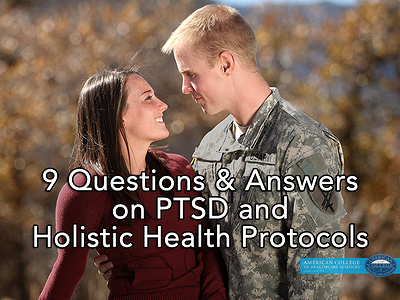
 According to the National Institute of Mental Health, Post-Traumatic Stress Disorder (PTSD) affects over 7.7 million American adults. With June being PTSD Awareness Month, we were honored to host a webinar on Post-Traumatic Stress presented by our own Tim Grutzius, an ACHS Alumnus and Lieutenant/Paramedic for the Alsip, IL Fire Department.
According to the National Institute of Mental Health, Post-Traumatic Stress Disorder (PTSD) affects over 7.7 million American adults. With June being PTSD Awareness Month, we were honored to host a webinar on Post-Traumatic Stress presented by our own Tim Grutzius, an ACHS Alumnus and Lieutenant/Paramedic for the Alsip, IL Fire Department.
We are so grateful that Tim was able to join us to help raise awareness about this difficult disorder that affects so many. Tim was gracious enough to share his own story and struggles with PTSD as well as the holistic avenues he pursued to help himself heal and recover. If you missed this important webinar on PTSD and holistic health, you can watch the archived recording here: Post-Traumatic Stress Disorder: Holistic Wellness as a Path to a More Balanced Life.
At the end of the presentation, Tim answered some great questions from the audience in a 10 minute Q&A. He wanted to make sure all your questions were answered, so we’ve put together a follow up blog post addressing the questions that he was unable to get to during the Q&A.
Question: What are your thoughts on treating secondary PTSD?
Tim Grutzius: According to the website Family of a Vet, secondary PTSD is not recognized in the DSM manual of mental disorders. Secondary PTSD happens to a caregiver (spouse, child, mother, or father) who lives with someone with primary PTSD. The caregiver begins to mirror some of the behaviors of their loved one.
I believe that whether primary or secondary, complementary alternative medicine (CAM) protocols can be used to support the nervous system of both parties. I would suggest that the caregiver seek psychological counseling and support as well. Here is the URL for Family of a Vet’s discussion on secondary PTSD: http://www.familyofavet.com/secondary_ptsd.html
Q: I am a nurse with the VA. I am also an ACHS student. What can I do to be proactive in presenting these holistic modalities for consideration for our vets?
TG: To be proactive means to educate. Remember there was an American Legion symposium on PTSD/TBI just a few days ago. Those that gathered had a conversation about the use of CAM as an alternative to traditional medicine. This gives us hope that people out there are willing to listen.
Be persistent and find someone within the VA who believes in the mission we represent as the ACHS community with regard to natural medicine. If you need another voice to help you, please contact me at my email (tandj1096@yahoo.com) to get things rolling, since I am a veteran of the Army as well. Here is the link to the American Legion survey: Legion Survey: PTSD/TBI care not working
Q: Do you know of any official research on performing diagnostic tests for adrenal/cortisol function, blood sugar, and insulin levels? Are there other diagnostics you suggest? How about dietary component: supporting brain function by removing grains, gluten, dairy, [and/or] other known allergens? Do you have an opinion on any of this […] in support of PTSD recovery?
TG: I do not know of any official research on performing diagnostic tests for adrenal/cortisol, BS, and insulin levels in support of PTSD. However, I subscribe to a listserv called Willis protocols (Yahoo group) that has a very interesting article posted on testing cortisol. As far as dietary diagnostics, it would most likely take an elimination diet along with blood labs during this process (done in conjunction with a licensed healthcare provider, of course). I would also try the U.S. National Library of Medicine and National Institutes of Health website PubMed which is a great research search engine. Here is the link to the cortisol article: Cortisol Testing May Soon Be Available on All Smartphones
Q: I currently work with a number of individuals with PTSD in the community mental health field. I am wondering if you know of resources for those who are on fixed income or experiencing homelessness?
TG: When I was researching the answer to the above question on secondary PTSD (see link in that response), the page I viewed mentioned a resource that offers free counseling specific to vets and their families. However, I am sure if you contact them, they can also give you leads to resources that would benefit the general population. This is a nationwide organization. Here is that link: Give an Hour
The American Legion also offers support for homeless veterans. You can find more information here: American Legion – Homeless Veterans
Q: How does one feel when they have a flashback? Is it spinning, nausea, etc. Do you "see" things in your mind? Can you explain what someone experiences typically?
TG: In the first few years after my colleague’s suicide, I never experienced severe flashbacks. However, there were many times that I felt his presence in my home. I would break out in a cold sweat and was afraid to move from room to room, especially at night. This became more prominent around the anniversary of his death.
Q: I have two children who are active duty and one who is in the National Guard, is there anything that can be done proactively? Can you recommend a resource?
TG: From what I have read following my research for these questions, I would look at the two websites I mentioned (Family of a Vet and Give An Hour) as a starting point. If you really want to be proactive, then I would speak with your children directly about how they are doing. Hopefully you can find a counselor near you on Give An Hour to keep on file should your children need it. I would suggest to them that it would not be a bad idea to check in with a counselor whether or not they are suffering from PTSD.
Q: How open were you to holistic methods when they were first introduced?
TG: I was very open to the holistic protocols primarily because I have a background in Holistic Health Practice through ACHS. Holism asks us to seek the underlying cause of any issue. Once I did this, the rest fell into place. I personally made the choice as to what CAM methods I was going to pursue to help me with the healing process. The counseling helps me to sort through issues that are brought to the surface. I also receive an hour and a half massage twice a month as well as hydrotherapy/aromatherapy (lavender and sea salt soak).
Q: I am curious: what type of psychotherapy did you go through? I am a college student and my focus is psychology/psychotherapy, and I wonder what your experience was like.
TG: I have never asked my counselor about the exact type of psychotherapy I receive. In doing my own research, I believe it is Cognitive Behavior Therapy because it requires the client to be introspective. My first session was all over the page, so my counselor asked me to bring back one or two issues at a time to talk about. Journaling helped me to refine my focus and has made the sessions more fruitful.
The key to my success with both CAM and counseling is that I did all the work. I was given weekly homework at the start to help me make sense of my underlying issues.
Q: I discovered I have PTSD about 20 months ago. In my process of recovery, I developed an essential oil blend that has been used by over 100 people with positive results. Some are veterans with PTSD, others are rape survivors, and some folks have had lifelong panic disorders. Through One Billion Rising initiatives, I've also started speaking publicly, sharing my story, and I’ve realized my journal is a book in progress. I am working with several people, looking for funding for a clinical trial. This has been a 40-year process of healing, and the use of CAM therapies has been so helpful. So was EMDR as part of psychotherapy. Best wishes to you. I'd like to speak with you further.
TG: It sounds as if we have a couple of things in common. My mission is to tell my story to as many people as possible to get the word out about the issue of PTSD. I would like to speak with you as well to see if there is anything I can do to help further your cause. Contact me at my email (tandj1096@yahoo.com).
Final Thoughts from Tim:
Thanks to all who sent me questions as well as participated in the webinar itself. PTSD can be a lifelong struggle of which one can suffer in silence yet still manifest outward signs to others. To heal, one must take a good look in the proverbial mirror to find the underlying cause. I believe asking for help is not a sign of weakness, but rather a show of courage and strength. This quote sums up the struggle of PTSD:
"We are not tested to show our weakness, but to find our strength."
This article is for informational purposes only. It is not intended to treat, diagnose, cure, or prevent disease. This article has not been reviewed by the FDA. Always consult with your primary care physician or naturopathic doctor before making any significant changes to your health and wellness routine.

